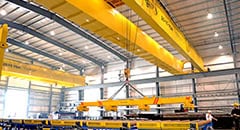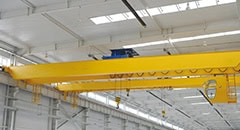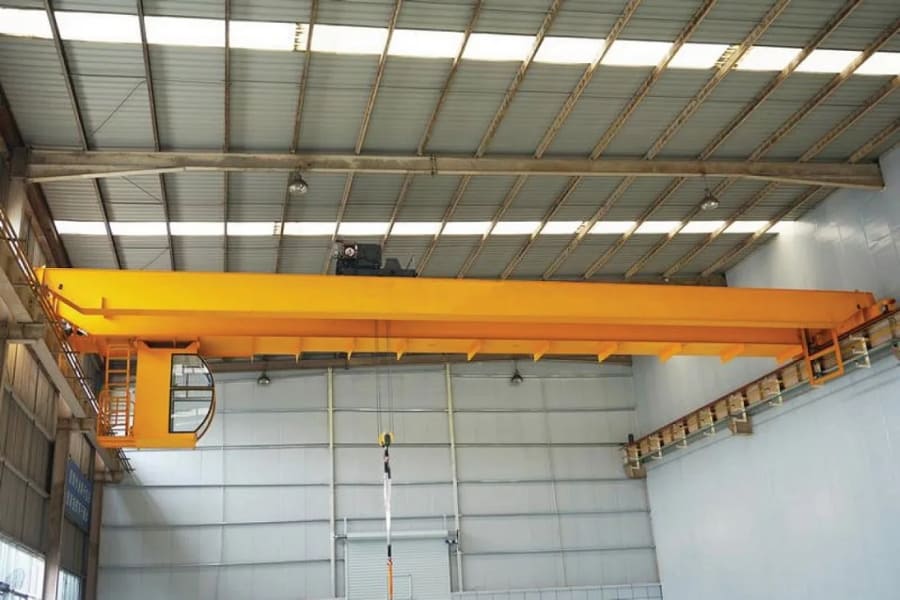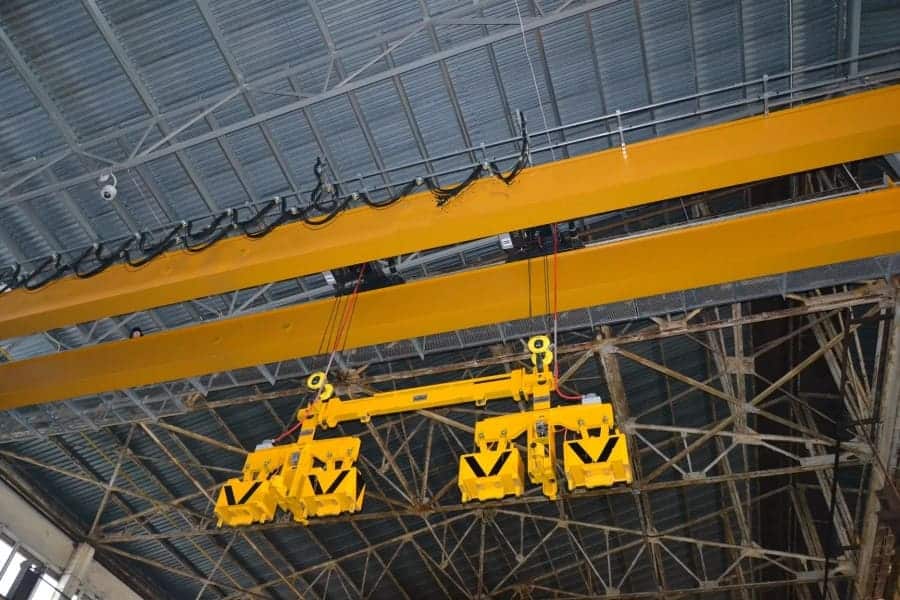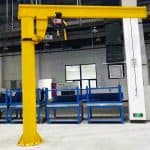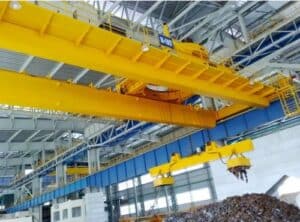A double trolley crane, also known as a twin trolley crane or dual trolley crane, is a type of overhead crane that is equipped with two separate trolleys that can operate independently on the same bridge girder. Each trolley has its own hoist mechanism and can move along the bridge girder simultaneously or independently of each other.
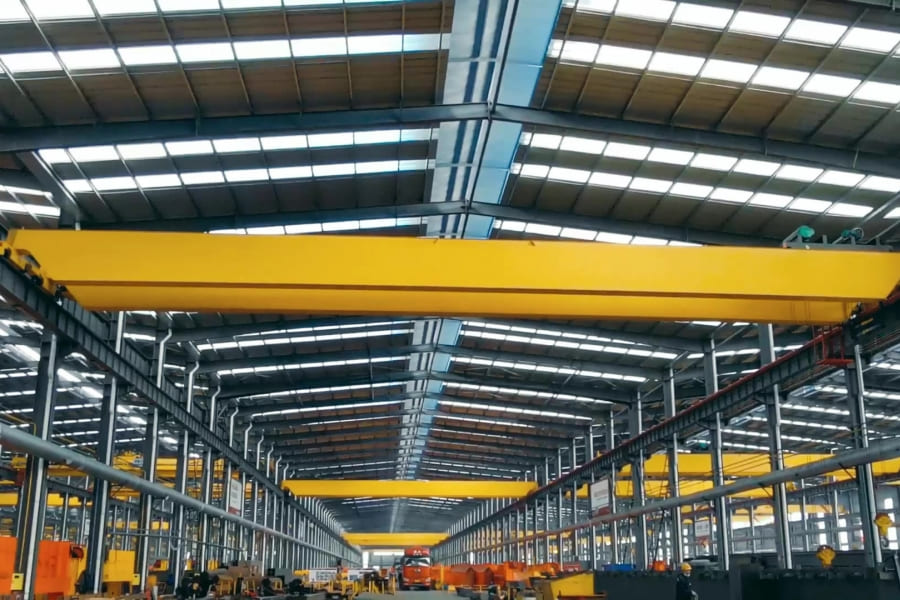
Here are some key features and components of a double trolley crane:
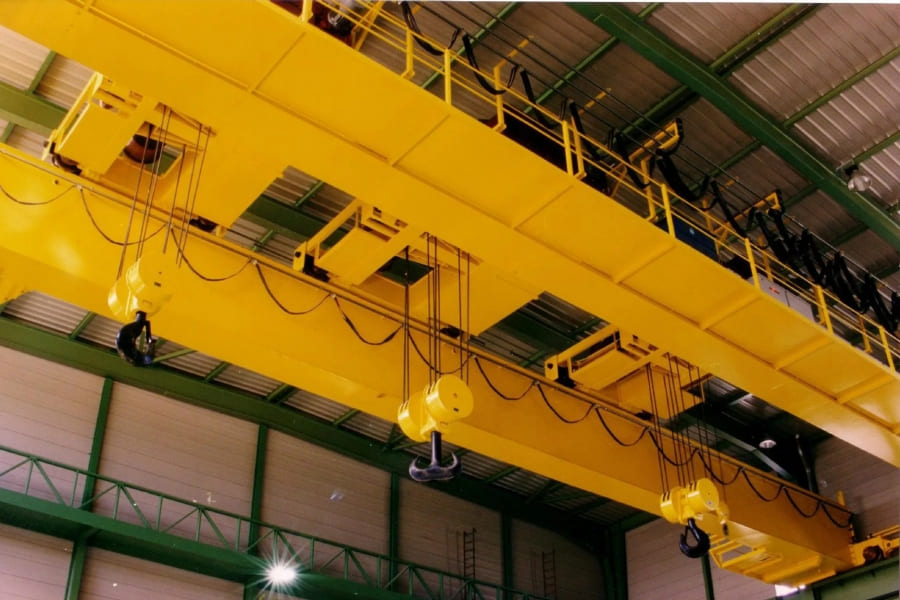
Bridge Girder: The bridge girder is the horizontal beam that spans the distance between the end trucks. It supports the two trolleys and provides the structure for the movement of the crane.
End Trucks: The end trucks are located at either end of the bridge girder and house the wheels that run on the runway beams. They provide support and stability to the crane.
Trolleys: A double trolley crane has two separate trolleys that are mounted on the bridge girder. Each trolley is equipped with its own hoist mechanism and can move horizontally along the length of the bridge girder. The trolleys are typically driven by electric motors or other power sources.
Hoist Mechanisms: Each trolley is equipped with its own hoist mechanism, which includes a lifting device such as a chain hoist or wire rope hoist. The hoist mechanism is responsible for lifting and lowering loads independently on each trolley.
Controls: Double trolley cranes are operated using control systems that allow the crane operator to control the movement of each trolley and the respective hoist mechanisms. The controls can be operated from a pendant control station or through a remote control device.
The use of a double trolley crane offers several benefits in certain applications:
Increased Lifting Capacity: With two separate trolleys and hoist mechanisms, a double trolley crane can handle heavier loads compared to a single trolley crane. Each trolley can lift and move loads independently, allowing for greater lifting capacity and flexibility.
Simultaneous or Independent Operations: The two trolleys on a double trolley crane can operate simultaneously, lifting and moving separate loads at the same time. Alternatively, they can operate independently, allowing for separate handling of different loads in different areas of the workspace.
Improved Efficiency and Productivity: The ability to handle multiple loads simultaneously or independently increases the efficiency and productivity of material handling operations. It reduces the need for multiple crane setups or transfers, streamlining the workflow and minimizing downtime.
Versatile Load Handling: A double trolley crane provides versatility in load handling. It can be used for tasks such as load balancing, handling long or bulky materials, or simultaneous loading and unloading operations.
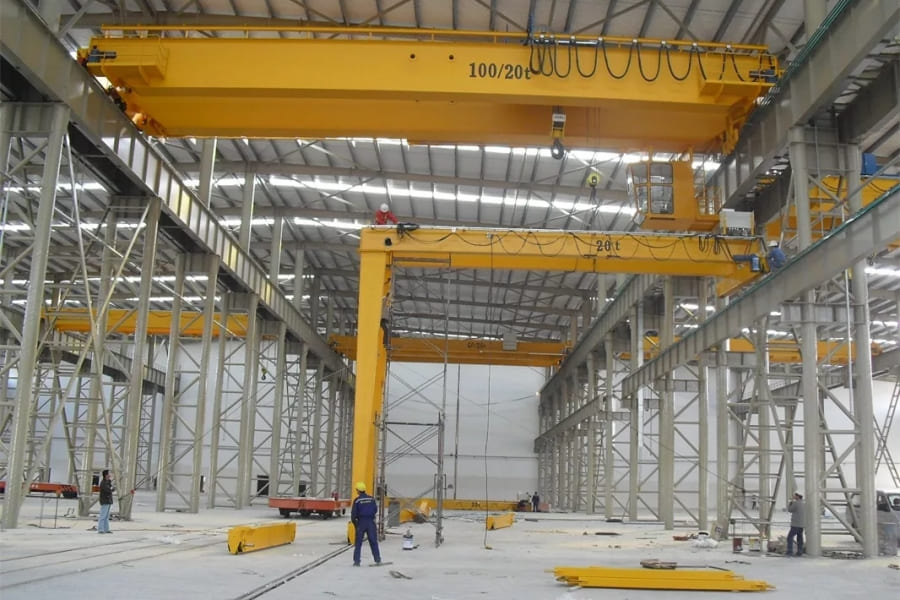
Double trolley cranes are commonly used in industries such as steel fabrication, heavy machinery manufacturing, shipbuilding, and other applications where handling large and heavy loads efficiently and simultaneously is required.

